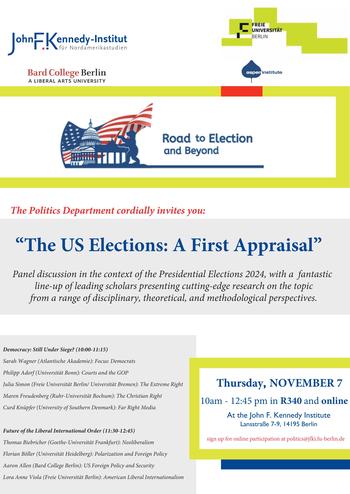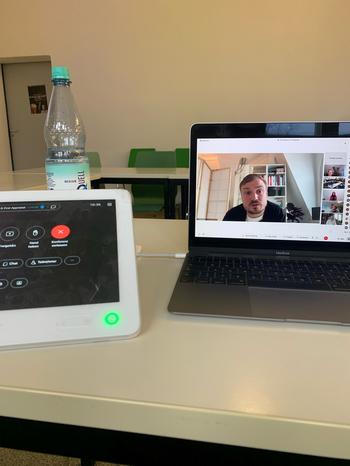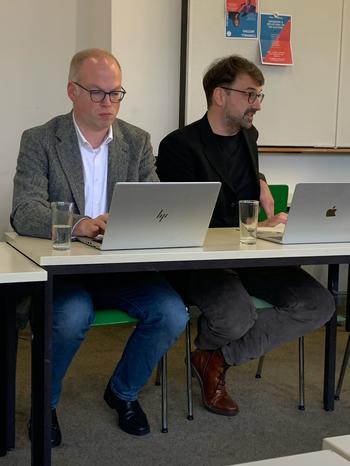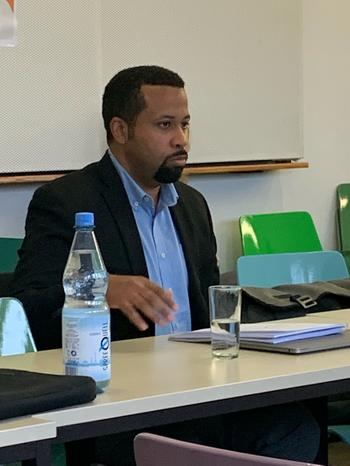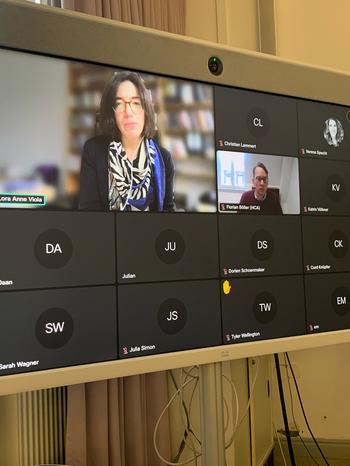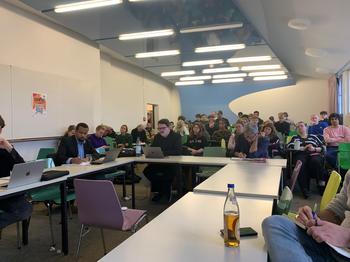US Elections 2024
"The US Elections: A First Appraisal"
The John F. Kennedy Institute hosted a comprehensive panel discussion on November 7, 2024, titled "The US Elections: A First Appraisal," to analyze the outcomes of the 2024 Presidential Elections. The event - organized by the JFKI and Bard College Berlin with the support of the Aspen Institute - was held at the JFKI and simultaneously streamed online, drew a full house with numerous virtual participants, highlighting the widespread interest in the topic.
The discussion was structured into two main sessions, each featuring distinguished scholars from various academic institutions. The first session, "Democracy: Still Under Siege?" explored the domestic political context of the election. Sarah Wagner from the Atlantische Akademie opened the discussion with insights into the Democratic Party's role and potential future. Philipp Adorf from Universität Bonn then shifted focus to the Republican Party and examined the potential impact of the court system, particularly the Supreme Court, on political developments in a second Trump administration.
Julia Simon from Freie Universität Berlin and Universität Bremen broadened the perspective to include various actors within the extreme political right. Maren Freudenberg from Ruhr-Universität Bochum provided an analysis of the Christian Right and right-wing conservative evangelicals. Curd Knüpfer from the University of Southern Denmark concluded this session with a discussion on the media system, public sphere, and the role of far-right media.
The second session, "Future of the Liberal International Order," addressed the broader international implications of the election results. Florian Böller from Universität Heidelberg explored potential changes in US foreign policy under Trump. Aaron Allen from Bard College Berlin analyzed US foreign policy and security considerations. Lora Anne Viola from Freie Universität Berlin examined the broader context of the liberal world order and the future role of the United States within it. Helmut Aust from FU Berlin discussed international law, its potential constraints on Trump, and how Trump might interact with international law during his second term.
This event provided a platform for experts and students to engage in a thorough discussion of the election outcomes, offering diverse perspectives on the state of US democracy and its global implications. The panel's composition ensured a comprehensive analysis, covering domestic political dynamics, international relations, and the broader ideological landscape shaped by the election results.

